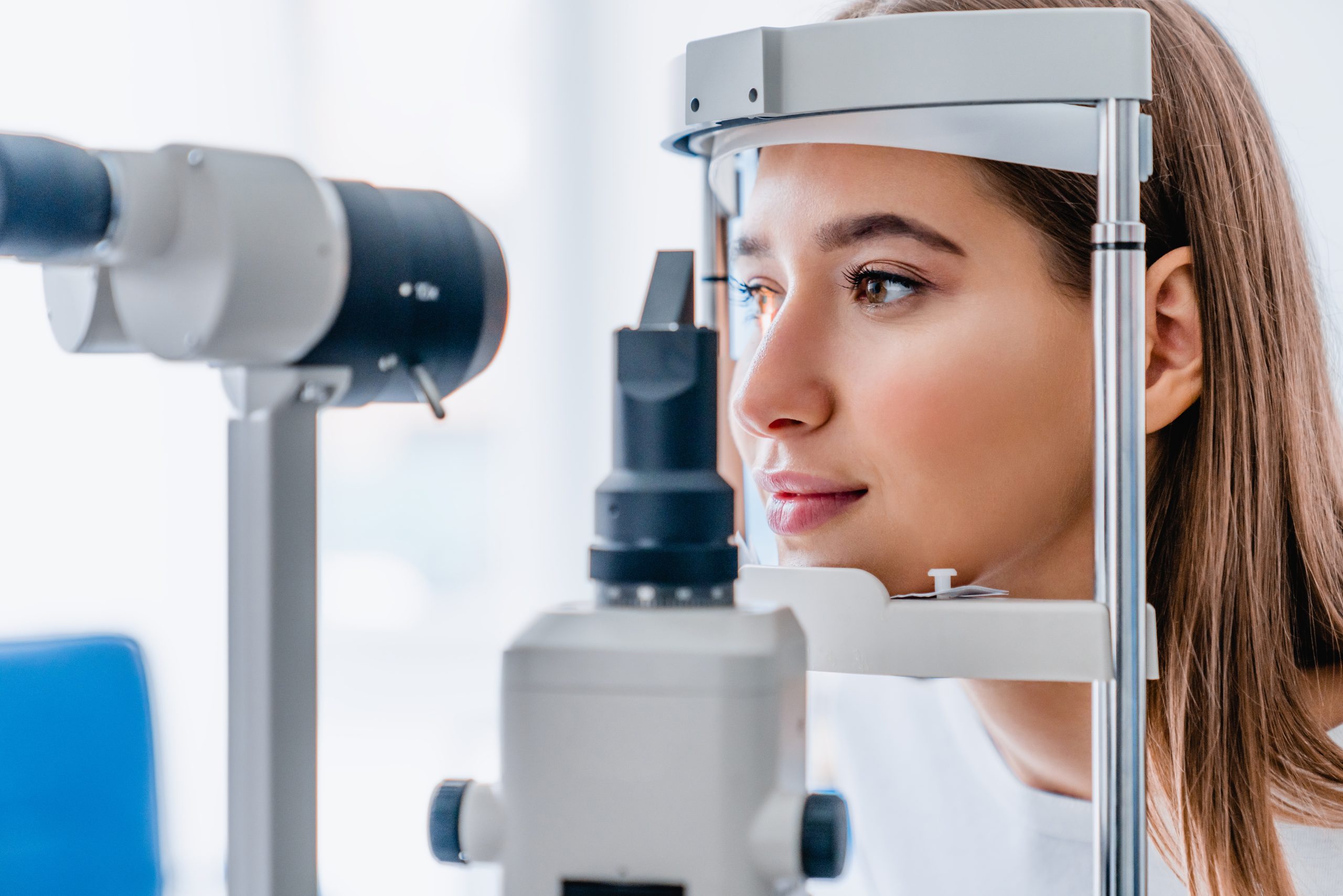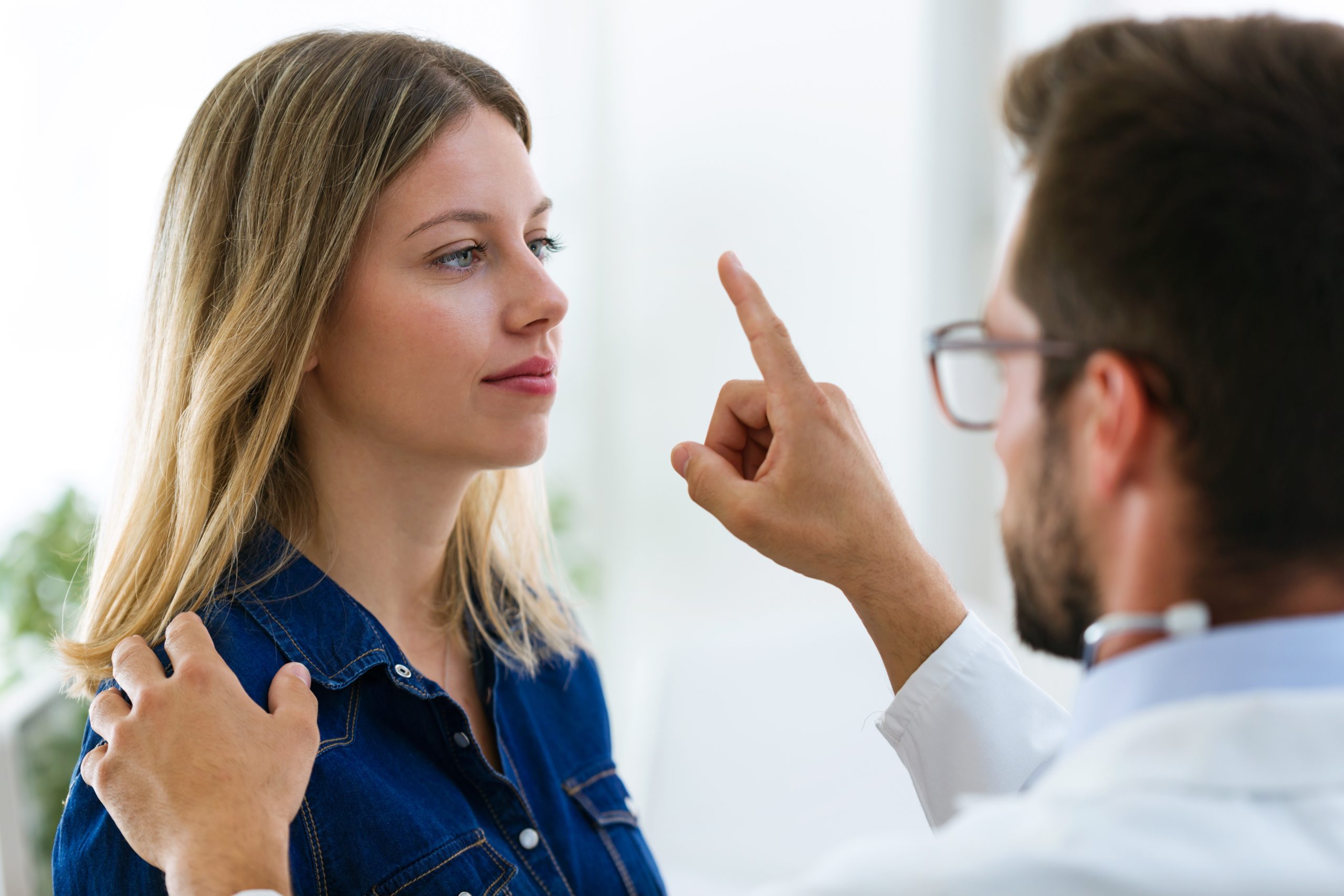Neuro-Optometric Rehabilitation in Parker, CO
At Good iSight Optometry and Vision Therapy, we provide Neuro-Optometric Rehabilitation Therapy in Parker, CO, for children and adults experiencing vision challenges related to the brain and nervous system. Led by Dr. Kalynn Good, a residency-trained neuro optometrist, our practice focuses on identifying and treating brain-based vision conditions that go beyond standard eyesight concerns.
This specialized care is designed for patients whose vision problems affect daily life, learning, work, balance, or comfort. If you are searching for neuro-optometric rehabilitation, our Parker office offers personalized evaluations and treatment plans built around your unique needs. We invite you to schedule online or contact our office to learn whether neuro-optometric rehabilitation is right for you.

What Is Neuro-Optometric Rehabilitation?
Neuro-optometric rehabilitation is a specialized form of optometric rehabilitation that focuses on how the brain processes visual information. Vision is not limited to the eyes alone. It relies on complex communication between the eyes, brain, and nervous system.
This type of care is provided by a neurological optometrist who has advanced training in identifying vision problems caused by neurological disruption. Neuro-optometric rehabilitation can benefit both adults and children whose visual systems have been affected by injury, illness, or developmental challenges.
How Does Neuro-Optometric Rehabilitation Therapy Work?
Neuro-optometric rehabilitation therapy follows a structured yet individualized process designed to address the root cause of brain-based vision issues.
Care typically includes:
- A comprehensive neuro-optometric evaluation that goes beyond a routine eye exam
- Identification of visual-neurological deficits affecting function and comfort
- Development of a personalized treatment plan based on findings
Treatment plans may incorporate:
- Neuro vision therapy exercises
- Therapeutic lenses or prisms
- Visual-motor and sensory integration techniques
At Good iSight, every plan is tailored to the individual. Our goal is to improve visual efficiency, comfort, and function in a way that supports long-term progress.
What Conditions Does Neuro-Optometric Rehabilitation Treat?
Neuro-optometric rehabilitation is often recommended for patients experiencing vision problems related to neurological conditions, including:
- Concussion and post-concussion syndrome
- Traumatic brain injury (TBI)
- Stroke-related vision changes
- Neurological disorders affecting vision
- Developmental or acquired visual processing issues
Patients seeking care from a neuro eye doctor often notice improvements in daily activities as therapy progresses. This type of visual rehabilitation therapy focuses on restoring functional vision, not just clarity.
What Symptoms Indicate You May Need Neuro-Optometric Rehabilitation?
Brain-based vision issues can present in many ways and are not always obvious during a standard eye exam. Common symptoms include:
- Double or blurry vision
- Headaches or eye strain
- Light sensitivity
- Dizziness or balance difficulties
- Trouble reading or focusing
- Visual fatigue with screens
- Difficulty driving or navigating space
If these symptoms interfere with school, work, or daily activities, a neuro-optometric evaluation may be appropriate.
When to schedule an evaluation:
If symptoms persist after a concussion, neurological event, or without a clear explanation, early assessment by a neuro-optometrist can help identify underlying visual factors and guide next steps.
Visual Therapy Services that Unlock Your Vision Potential
Book Your Appointment Today
How Is Neuro-Optometric Rehabilitation Different From Regular Vision Therapy?
Traditional vision therapy often focuses on eye teaming, tracking, and focusing skills. While these areas are important, neuro-optometric rehabilitation therapy addresses vision problems that originate from neurological disruption.
Key differences include:
- Focus on brain-based visual processing
- Advanced evaluation methods
- Integration of neurological and visual systems
Choosing a neuro-optometrist with residency training ensures that care is tailored to the complexity of neurological vision conditions. At Good iSight, our approach reflects Dr. Good’s specialized background and commitment to individualized treatment.
What Should I Expect at My First Neuro-Optometric Rehabilitation Appointment in Parker, CO?
Your first appointment at Good iSight Optometry and Vision Therapy is designed to be thorough, informative, and patient-focused.
You can expect:
- A detailed evaluation that goes beyond a routine eye exam
- Use of advanced diagnostic technology
- Time spent discussing symptoms, history, and daily challenges
- Clear explanations and patient education throughout the visit
We prioritize listening to patient concerns and helping families understand both findings and recommendations. Our goal is to create clarity and confidence from the very first visit.
How Long Does Neuro-Optometric Rehabilitation Treatment Take?
The length of neuro-optometric rehabilitation varies for each patient and depends on several factors, including:
- The underlying condition
- Severity of symptoms
- Individual goals and response to therapy
Treatment often progresses in phases, with regular reassessments to track improvement and adjust care as needed. We avoid rigid timelines and focus instead on meaningful, steady progress.
Is Neuro-Optometric Rehabilitation Covered by Insurance in Colorado?
Coverage for neuro-optometric rehabilitation therapy varies based on your insurance plan and diagnosis. Some aspects of care may fall under medical benefits, while others may be considered vision-related services.
Our team encourages patients to contact the office for a benefit review. We are committed to clear communication and transparency so you can make informed decisions about your care.
Why Choose Good iSight for Neuro-Optometric Rehabilitation?
Patients choose Good iSight Optometry and Vision Therapy because we combine advanced training with individualized care.
Our practice offers:
- Residency-trained neuro optometrist, Dr. Kalynn Good
- Personalized neuro vision therapy plans
- Advanced diagnostic and therapeutic technology
- Experience working with both children and adults
- A strong focus on patient education and communication
- Local Parker, CO care with same-day emergency availability when appropriate
We are dedicated to helping patients unlock their full vision potential through thoughtful, evidence-based care.

Schedule Neuro-Optometric Rehabilitation in Parker, CO
If you are looking for neuro-optometric rehabilitation therapy, Good iSight Optometry and Vision Therapy provides comprehensive, personalized care in Parker, CO. Our team is here to help you better understand your vision and explore solutions that support long-term visual function.
Schedule your evaluation online or contact our office today to take the next step toward improved visual health.
